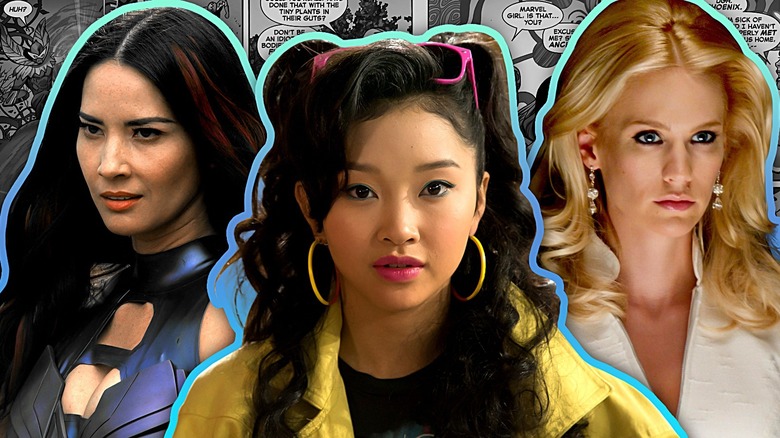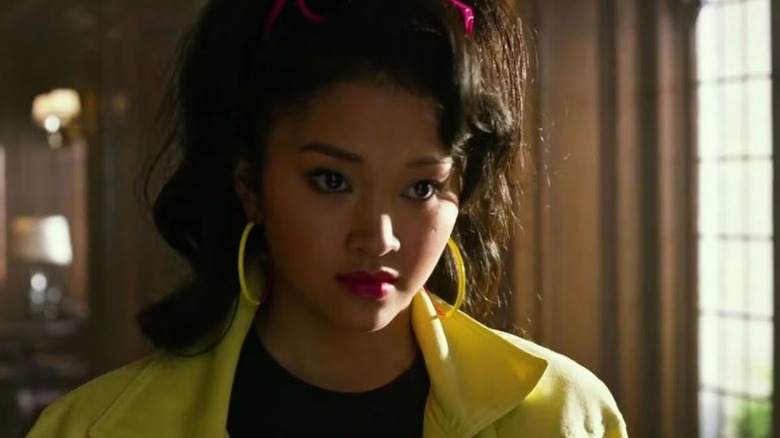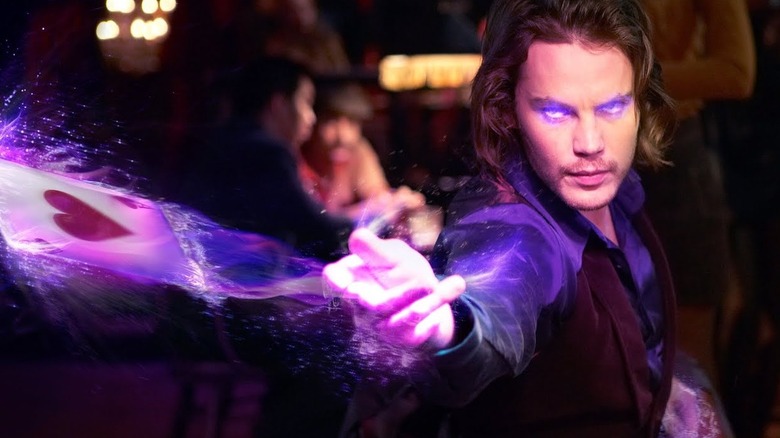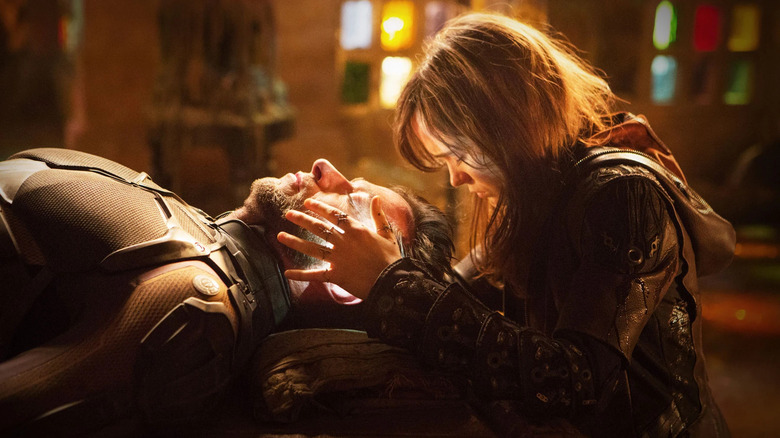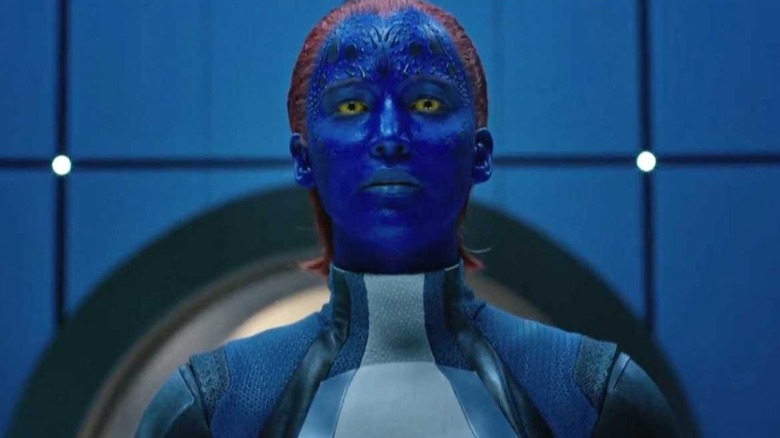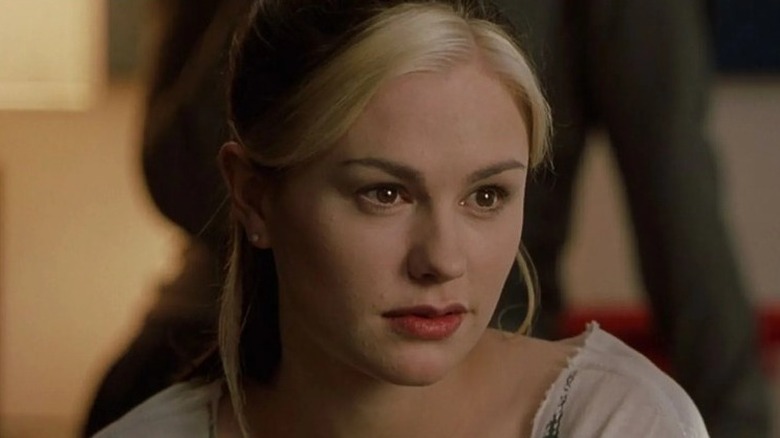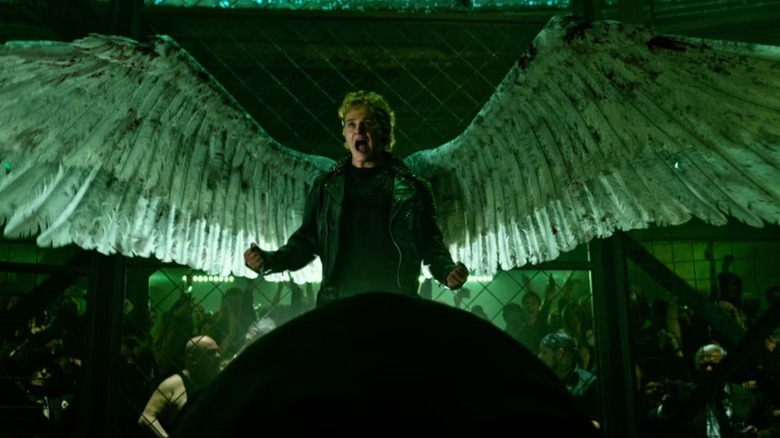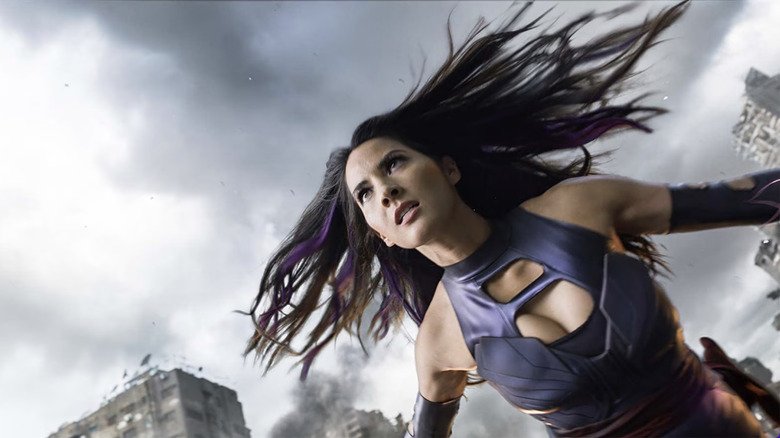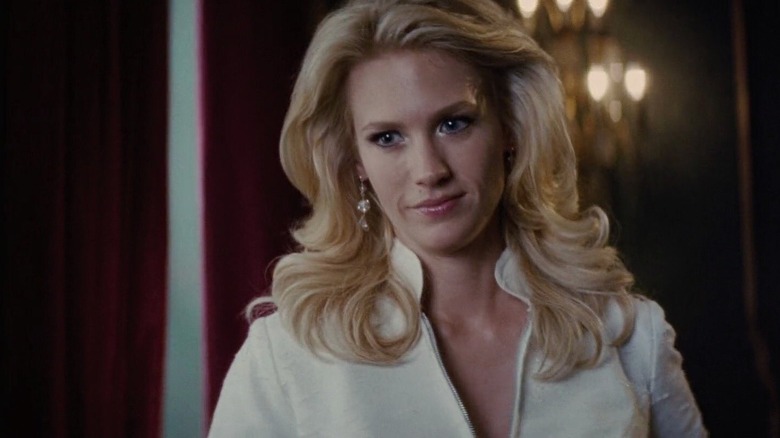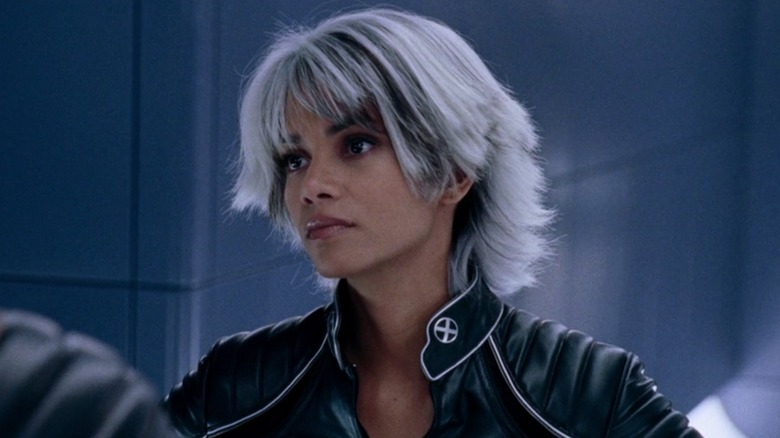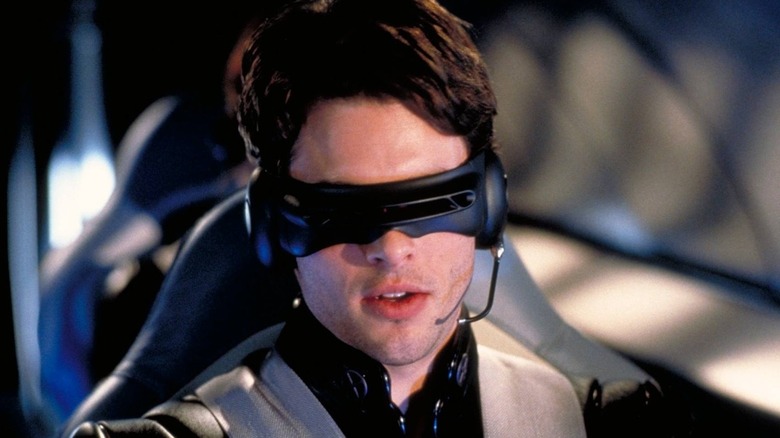The Marvel Characters The X-Men Movies Screwed Over The Most, Ranked
This post contains spoilers for "Deadpool & Wolverine."
The end credits of "Deadpool & Wolverine" feature clips from past "X-Men" movies, set to Green Day's misunderstood break-up song "Good Riddance." Marvel Studios is prepping the merry mutants to join the Marvel Cinematic Universe, so the era of early "X-Men" films is over. But are these movies really worth celebrating?
Look, I like some of the "X-Men" movies on their own terms. "Logan" is a gem; I even think director James Mangold's first mutant rodeo, "The Wolverine," is underrated. "X2" is solid, despite being a much-less complex story than its source material, "God Loves, Man Kills" by Chris Claremont and Brent Anderson. I like the story about Charles (James McAvoy) and Erik (Michael Fassbender) buried inside "X-Men: First Class." And "X-Men: Days of Future Past" has some of the best silver screen superhero action ever.
But as I dive deeper into the comics, I can't help but conclude that these movies were never good adaptations. They pale especially compared to this year's animated "X-Men '97," which proved superhero soap opera and pixie-stick fueled plotting doesn't come at the expense of meaningful stories. Anyone who's read the classic Chris Claremont "X-Men" comics could tell you that, but original "X-Men" director Bryan Singer banned comics on set; he thought he had to elevate schlock into something "better."
"X-Men" has one of the biggest ensembles in comics, while the movies just kept centering on the same 3-4 characters (Professor X, Magneto, Wolverine, and occasionally the Phoenix) and kept the scope small. Comics are about imagination, and these movies were not reflective of that.
Along the way, the movies threw all the other characters up in the air, mixing and matching their personalities and relationships along the way. Here are the X-Men characters who got it the worst.
10. Jubilee
Jubilation Lee has a mutant gift that lives up to her lively name: She can create fireworks at her fingertips. Famous for her long yellow jacket and pink shades, she's most well-known for her appearance in the 1992 "X-Men" cartoon; as the sole teenage lead, she served as young viewers' eyes into the X-Men. (Pilot "Night of the Sentinels" is about how she joins them.) A Chinese-American, Jubilee's presence adds some needed diversity to the group. (The mutant minority metaphor rings a bit hollow when most major mutants are white people.)
Katrina Florence played Jubilee as background extra in "X-Men" before being recast with Kea Wong for "X2" and "X-Men: The Last Stand." Throughout the trilogy, Jubilee is so forgettable I'd bet you didn't even know she was in those movies. I didn't until I double-checked. Jubilee seemed poised for a bigger role in "X-Men: Apocalypse," played in that film by Lana Condor, but most of her scenes were deleted and she was not brought back for the 2019 sequel "Dark Phoenix." She honestly has more lines in a promotional video than she does in the movie itself.
At least they got her costume right; "Apocalypse" is set in 1983 and Jubilee has the most '80s costume of any X-Man.
9. Gambit
Remy LeBeau is a Cajun thief with a heart of gold who can make playing cards (and the ladies' hearts) explode. Gambit has been a perennial X-Men since the 1990s, but he only showed up once in "X-Men Origins: Wolverine," played by Taylor Kitsch. Kitsch has the right look and is suave enough to play Gambit, but his role is confusing. What is he doing in a Wolverine origin story, besides bloating the film?
Gambit has the charisma and a unique enough backstory to hold his own movie — presumably one set in New Orleans as he's caught in a war between the local thieves and assassins guilds. He was in "X-Men Origins" to set up such a movie, but it fell into development hell and never climbed out, even as Kitsch was replaced by Channing Tatum. Tatum finally got to play Gambit in "Wolverine & Deadpool," but his inclusion reeks of self-referential inside baseball.
Putting Gambit in his prime during the 1970s precluded him from showing up as a proper X-Men. It's more confounding since a key part of Gambit is his love story with Rogue (two soulmates who can never kiss), who was part of the main cast from the beginning, yet the movies never bring them together. See what I'm talking about with the musical chairs style rearrangement of characters in the "X-Men" films?
8. Kitty Pryde
Kitty Pryde/Shadowcat, the girl who can walk through walls, grew up as an X-Man. Introduced during "The Dark Phoenix Saga," she became the X-Men's token teen and readers saw her grow from a frightened rookie into an accomplished heroine.
The movies pass that role, and Kitty's teacher-student bond with Wolverine (Hugh Jackman), onto Rogue (Anna Paquin), which only does a disservice to both their characters. Kitty was so inconsequential in the original "X-Men" movies she was recast in each one of them: Sumela Kay played her in "X-Men," Katie Stuart took over in "X2," and finally Elliot Page took the part in "The Last Stand." (Page is the only Shadowcat anyone remembers, hence why he got to come back for "Days of Future Past.")
Even in "The Last Stand," where Kitty finally gets some dialogue, she's mostly just there to flutter her eyes at Iceman (Shawn Ashmore) and make Rogue jealous. She uses her powers to outsmart Juggernaut (Vinnie Jones) in the climax, but it's too little too late.
Kitty was the star of the comic "Days of Future Past," traveling back in time to prevent an apocalyptic future (before Kyle Reese did so in "The Terminator," I'll add.) But in the movie, she's just the MacGuffin, sending Wolverine back in time with an unconventional use of her phasing powers.
7. Mystique
Raven Darkholme/Mystique debuts in the original "X-Men" trilogy as Magneto's right hand, played by Rebecca Romijn. Those movies handle her fine. She's a sociopathic femme fatale, and Romijn walks the line of making her sexy and reptilian. It's a tad frustrating to see Mystique reduced to a man's henchwoman when she's supposed to be a mastermind villain in her own right, and her role as Rogue and Nightcrawler's long-lost mother was excised. But in boiling down the basics of the character, it's solid.
The problem emerges in the prequel films ("X-Men: First Class" onward), when Mystique was recast with Jennifer Lawrence. "First Class" reveals she was once Charles Xavier's adopted sister, a WTF retcon both to the original trilogy and their comic counterparts. Then, when Lawrence became a movie star between "First Class" and "Days of Future Past," the movies had to adjust.
Mystique was remade into the center of the X-Men's world and a practical mutant messiah, who eventually becomes the X-Men's field leader. Yeah, no ... Mystique is an assassin and cold to her core, with no room in her heart for anyone but her wife Destiny (the movies never mention her queerness) and sometimes her children. Mystique's vibe is embodied in the song "B*tch" by Meredith Brooks, a vibe Lawrence's Mystique has none of.
6. Rogue
A while back, I saw a tweet fancasting the MCU X-Men. The moment I suspected this person was only familiar with the movies as opposed to the comics was when they suggested Jenna Ortega, Hollywood's most in-demand goth girl thanks to "Wednesday," should play Rogue, and not Keke Palmer (who wants the part, FYI). Rogue is not a sullen wallflower, she's Dolly Parton if Dolly could fly and lift a dump truck single-handedly. Not that you'd know that from the movies.
The movies at least tried to give Rogue a central role, which is more than they afforded several other characters. Her angst about her powers, where she drains the life from someone if she touches them, is also faithfully adapted. That angst is amped up if Rogue has someone she wants to touch, but in the movies, her boyfriend is ... Iceman? That's definitely one of the most "pull two names out of hat" pairings in movies filled with them.
In the first film, Rogue is a mere damsel in distress, and she never grows out of that. "The Last Stand," torn between focusing on the Dark Phoenix and the mutant cure with not enough time for either, ends Rogue's story with her deciding to take that cure. It makes some sense as her decision, but it only muddles the story's themes (wait, so some minorities should choose the path of assimilation to fit in easier?).
Granted, Rogue's story will innately be incomplete if you don't have Carol Danvers/Ms. Marvel (the hero who Rogue, once a villain, stole her super strength and flying powers from). Perhaps this is something the MCU can finally remedy?
5. Angel
Speaking of the mutant cure, Warren Worthington III/Angel (Ben Foster) is another casualty of "The Last Stand" not committing to that storyline. The son of the man who is funding the cure, Angel's story is supposed to be about self-acceptance; he's no less a person just because he's got wings sprouting from his back. Unfortunately, he only gets a handful of scenes and not many more lines, so he doesn't have an arc so much as the shadow of one.
Angel was one of the original five X-Men members in the comics, so he's mutant royalty by default. His presence in "The Last Stand" feels a lot like a checklist line being crossed off, nothing more. ("Which famous mutant haven't we put in the movies yet?")
"X-Men: Apocalypse" features a new take on Angel (Ben Hardy) and adapts his most famous comic arc: being turned into the Horseman Death by Apocalypse and growing new wings made of metal. Despite an inspired body horror sequence where his wings are reshaped as steel (set to Metallica's "The Four Horsemen"), Angel's story falls flat. A hero going bad only works if the audience is familiar with them before their heel turn.
4. Psylocke
Psylocke has a ... complicated comic history. Introduced as British psychic Betsy Braddock, she got her mind swapped with the mutant Kwannon. They stayed that way for almost 30 years of publication. Yeah, a white woman possessing an Asian woman's body like a mutant "Get Out"? Not everything in the comics needs to be adapted.
Even so, when the "X-Men" movies used Psylocke, it left much to be desired. In "The Last Stand," Psylocke (played by Mei Melançon) is turned into a background member of Magneto's (Ian McKellen) new Brotherhood. Nothing about the character suggests Psylocke beyond her purple hair (she gets no name onscreen and is fighting on the wrong side.) In the climax of the movie, there's an insert shot of her getting vaporized by the Dark Phoenix. Oops!
Psylocke returned in "X-Men: Apocalypse" played by Olivia Munn. There, she at least had the right powers (creating purple energy blades) and looked more like the comics. (Munn had to request the right costume, proving she knew more about the source material than the filmmakers did.) However, she was still made into a villain, this time one of Apocalypse's Horsemen. If there's any sign that the "X-Men" treated most of the comic characters like filler, look no further than the handling of Psylocke.
3. Emma Frost
You might be noticing a pattern on this list; the "X-Men" making two attempts to adapt a character and failing both the first time and on the re-do. Emma Frost, the White Queen, is one of the worst cases of this.
Initially set to be played by Sigourney Weaver in "The Last Stand," Emma was cut during the script rewrites. "X-Men Origins: Wolverine" features a blonde mutant girl named Emma (Tahyna Tozzi), who can turn her skin diamond hard. This was clearly supposed to be Emma Frost, but instead she was reimagined as the sister of Wolverine's lover, Kayla Silverfox (Lynn Collins). "X-Men: First Class" quietly retconned this away for a more proper Emma Frost (January Jones), depicted as the White Queen of the Hellfire Club as she was in her first appearances.
This Emma, though, is just a cold henchwoman. She has none of the comic book Emma's sense of humor or Katharine Hepburn-esque Mid-Atlantic accent (both of which I'm sure Jones could have pulled off if properly directed). Emma Frost makes herself into eye candy to make sure men can't think straight around her; the Emma Frost in "First Class" is the hollow caricature the comic version only presents herself to be.
Emma was killed offscreen between movies, negating any chance to see her redemption arc from the comics play out. These days, Emma is one of mutantkind's most important leaders besides Professor X, Magneto, and Cyclops, but again, the movies don't bother with that.
2. Storm
Ororo Munroe/Storm is Mistress of the Elements and the X-Men's weather witch. A favorite of defining "X-Men" writer Chris Claremont, Storm was arguably the main character of his 1975-1991 run on "X-Men." Claremont elevated her into the team's leader and its most popular character next to Wolverine.
Storm's presence in the "X-Men" movies (played primarily by Halle Berry) always felt perfunctory. You can't have an "X-Men" movie without Storm, so here she is even if they can't be bothered to give her anything of importance to do. As part of keeping her away from the spotlight, Berry plays Storm as rather subdued. Storm, a goddess bound in human flesh who calls out to the weather to heed her commands like an anime character does before striking, is anything but.
You know who caught onto how the movies were short-changing Storm? Halle Berry. That's why the film's producers tricked her with a fake script for "The Last Stand" focusing heavily on Storm. That was a move so disgusting that original director Matthew Vaughn quit the project. Berry's Storm does get the most screen time in "The Last Stand" of the three films (she basically becomes team co-leader with Logan and the movie adapts her rivalry with Morlock leader Callisto), but it was still less than she — both the character and the actress — deserved.
1. Cyclops
No one could take the number one spot here except for Scott Summers/Cyclops (James Marsden). He's the leader of the X-Men and the one that mutants everywhere need. He may only see the world through red-tinted glasses, but his vision is the perfect synthesis of Xavier's idealism and Magneto's realism. While a great leader and strategist, he's also a walking mess, with little talent for socializing or expressing himself. (There's a reason his lovers tend to be telepaths, or people who leap over his emotional walls without him needing to tear them down.)
Well, not in the movies. There, Cyclops is a wet blanket and actually gets less important as the movies go on; he has a sizable role in "X-Men," he gets kidnapped for most of "X2," and then killed off without a care in "The Last Stand."
Scott becomes the third wheel in a love triangle, standing in the way of Logan and Jean getting together when it should be the other way around. Across the movies, Logan starts to feel more like Xavier's surrogate son and top student too, a role that's always belonged to Scott. If there's a character who most bore the brunt of Wolverine usurping the lead role in the "X-Men" movies, it's Cyclops.
